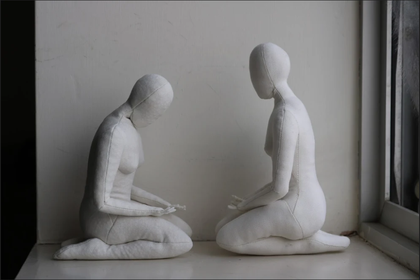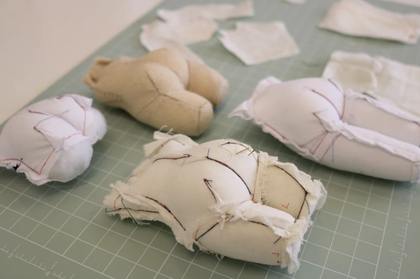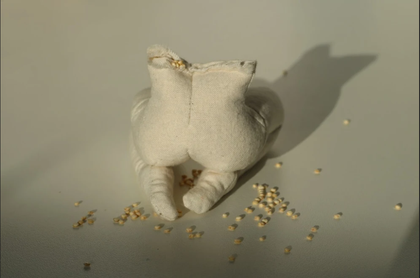Beyond her early surrealist paintings, Dorothea Tanning is best known for her pioneering use of Soft Sculpture. Notable works, such as Nue Couchee, 1969-70, used tennis balls, cardboard and cotton textiles, to create distorted, headless shapes that often evoked the female form in sensual yet witty ways.
In this four-week series of practical workshops led by artist Phoebe Corker-Marin, participants will explore the process of making soft sculptures, with references to techniques present in Tanning’s work.
No sewing experience is required for these workshops, only a willingness to learn new skills.
Biography
Phoebe’s formal education began with bachelor's degree in Experimental Psychology at The University of Oxford. Upon realising that her interest in the emotions and feelings of others was more personal than empirical she pivoted and completed a master’s degree in Textiles at the Royal College of Art. It was there she established herself as a figurative sculptor. As a sculptor Phoebe seeks to explore our internal narratives. For her these experiences are quite physical, grounded in her body. It is through our bodies that we perceive, remember, and react to the world. She therefore sets out to transcribe these internal experiences into physical objects; evoking the emotions through the materials and poses of her sculptures. The small handheld scale of her sculptures suit the intimate themes they address. Moreover rather than shouting their size is an invitation to come closer and engage with their world.



